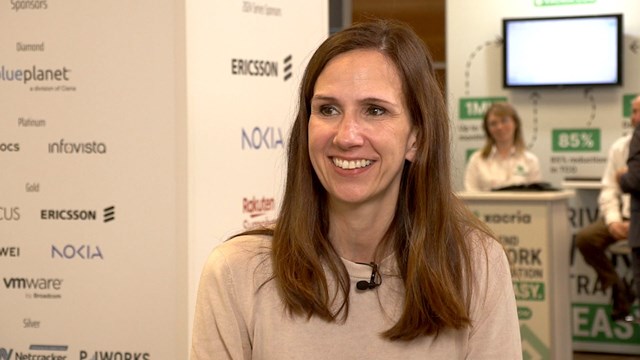Zuckerberg remains committed to the metaverse as Disney throws in the towel

- Money still no object to pay for Meta CEO’s ‘vision’, although thousands of Meta staff have been canned
- Former UK politician Nick Clegg (virtually) trots out ‘his master’s voice’ rationale for continuing hugely expensive experiment
- Meta insists project has legs, even if the avatars don’t
- Change will not come “overnight” – how true!
If any further confirmation were needed that the current clumsy concept of the metaverse is losing its allure, then last week’s news that Disney is closing and disbanding its metaverse division as part of a broader restructuring absolutely bull-horn bellowed it from the rooftops. Only last year, Disney described the metaverse as the “next great storytelling frontier” and was working to “create an entirely new paradigm for how audiences experience and engage with our stories” with the intent of integrating the technology into new interactive attractions at its Disneyland and Disney World theme parks as well as in Disney-branded consumer products. That goal seems to have been abandoned, at least until the technology is sufficiently mature to provide viable, commercial, money-making opportunities and the general public evince some interest in using it.
And, of course, Disney is not alone in rowing back from an initial state of metaverse euphoria: Microsoft’s Industrial Metaverse Core unit, which was only formed last October, was recently closed down as part of the tech giant’s recently announced cuts.
Apparently taken aback by Disney’s announcement, Meta’s overlord Mark Zuckerberg obviously thought it might be high time to re-affirm his and his company’s undying commitment to his vision of the metaverse. After all, he is the grand panjandrum: The boss, chairman, single largest shareholder and sole arbiter of what happens at the company that used to be called Facebook. And money, it seems, is still no object in his ongoing quest to bring his avatars down to earth by providing them with virtual legs.
However, as far as the legs department is concerned, the assembled ranks of Meta’s metaverse developers are still flummoxed by what the company describes as “basic issues of geometry”.
Anyway, to reassure the known universe that all will be well, Meta’s head of global affairs (and, once upon a time, in a country, far far away, a deputy prime minister) Nick Clegg (or at least his avatar) was wheeled out to spread the good news. There, with him, to receive the word from on high across a virtual wooden table from an apparently virtually botoxed virtual half-person, was a select (i.e. small) group of Meta-supplied Quest-Pro virtual reality (VR) headset-wearing journalists. The hacks were physically sited in an office in Washington DC, while Clegg’s rear end was seated in London.
Whilst the hacks’ neck muscles strained, Clegg – who styles himself as “the most senior European in an executive position in Silicon Valley” (at least for now) – promised that, in future, the experience of Meta’s metaverse will be much more user friendly and that headsets will soon be as light and caressing as a summer zephyr playing across the neatly trimmed greensward of 1 Hacker Way, Menlo Park (aka Meta HQ).
Clegg said: “I just really want to stress that we’re going to look back on the headwear we’re wearing now and think, ‘Gosh, do you remember the days when you would wear a Quest Pro?’”
Err, yes, they probably will – muscle memory, you know.
Asked about how Meta might, one day, make some kind of a return on its immense investments in the metaverse, Clegg reckoned it would come down to advertising and commerce – and that, of course, will be based on, and powered by, user data.
It has ever been thus, but as consumers become more aware and suspicious about the personal data they give away to ‘big tech’ in exchange for a few free apps and yet another virtual “retail experience and opportunity”, and as governments and regulators start to look seriously at curtailing the overweening power of such massive companies, scraping more data will become more difficult.
It’s interesting, and concerning, that Meta, which already collects user data directly from its VR products, has said that it is ‘considering’ introducing ‘targeted’ advertising in future. That could mean changing parameters in regard to the movements, physical features and other attributes of individual users, as well as their voice commands and point and click commands, that the company already collects to ‘improve products and user experience’, but which it also currently “de-identifies”.
Clegg told his levitating audience, “We’re going to stick with it, [the metaverse] because we really believe, all the early evidence suggests, that something like this will be the heart of the new computing platform, but it’s going to take a while. We’ve always been very clear that we’re in this for the long haul. This is not going to happen overnight.”
Well, it certainly hasn't so far.
This from the man who, before he took Zuckerberg’s dollars, told the London Evening Standard newspaper, “I’m not especially bedazzled by Facebook”, adding, “I actually find the messianic Californian new-world-touchy-feely culture of Facebook a little grating. Nor am I sure that companies such as Facebook really pay all the tax they could.”
He’s not the only one, but he seems to have forgotten he ever said it. His US$15m a year pay packet probably helps with his amnesia.
- Martyn Warwick, Editor in Chief, TelecomTV
Email Newsletters
Sign up to receive TelecomTV's top news and videos, plus exclusive subscriber-only content direct to your inbox.




